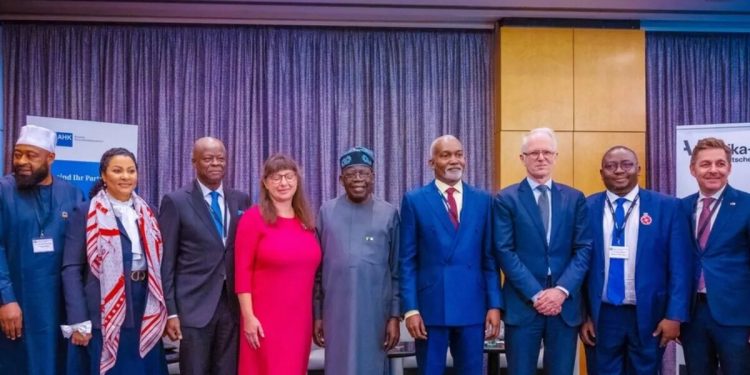In a pivotal economic development, Nigerian and German companies recently finalized two significant agreements in Berlin, valued at $500 million. These accords underscore a landmark in bilateral cooperation, focusing on renewable energy and gas export deals, as highlighted by Presidential spokesperson Ajuri Ngelale.
Union Bank of Nigeria and Germany’s DWS Group formalized a Memorandum of Understanding (MoU) aimed at attracting $500 million in investments dedicated to renewable energy projects, with a primary emphasis on rural communities across Nigeria.
The second MoU solidified a gas export partnership between Riverside LNG of Nigeria and Germany’s Johannes Schuetze Energy Import AG. This gas export deal commits Nigeria to supply 850,000 tons of natural gas annually to Germany, with projections indicating an increase to 1.2 million tons, starting from 2026.
One critical aspect of this agreement is its contribution to processing approximately 50 million cubic feet per day of natural gas, which would otherwise be flared. This aligns with the commitment of both nations toward environmentally conscious practices and sustainable energy solutions.
Nigeria, known for Africa’s largest gas reserves, has long grappled with environmental concerns linked to gas flaring. This deal represents a crucial step toward addressing this issue and harnessing Nigeria’s abundant gas resources for sustainable energy projects.
President Bola Tinubu, present at the G20 Compact with Africa conference in Berlin, expressed his approval of these agreements, affirming their significance in fostering economic ties and sustainable energy development.
Germany’s commitment to green energy projects in Africa, as announced by Chancellor Olaf Scholz, further complements these agreements. The 4 billion euro investment by 2030 aims to support Germany’s transition to carbon neutrality and meet its net-zero emissions goal by 2045.
Acknowledging the need for green hydrogen imports, particularly from Africa, Scholz highlighted the pivotal role of these investments in achieving environmental objectives during a German-African business forum preceding the G20 Compact with Africa summit.
Under President Tinubu’s leadership, Nigeria has implemented significant reforms aimed at attracting investment and revitalizing the economy, addressing challenges such as sluggish growth, record debt, and oil theft, which has resulted in substantial economic losses over the past years.










